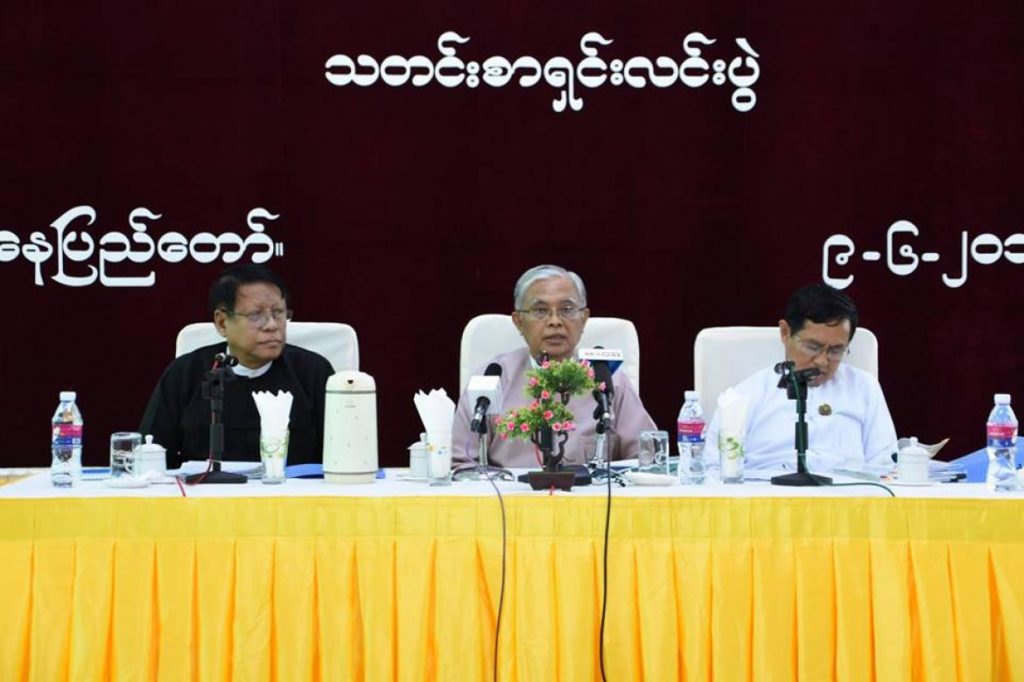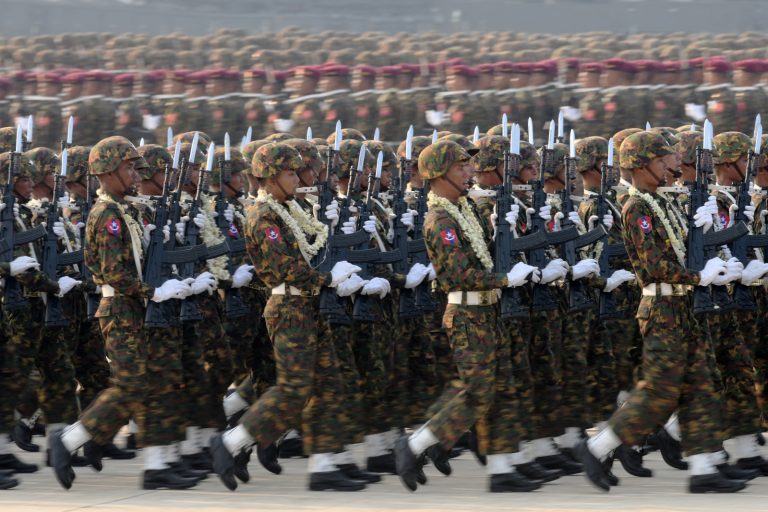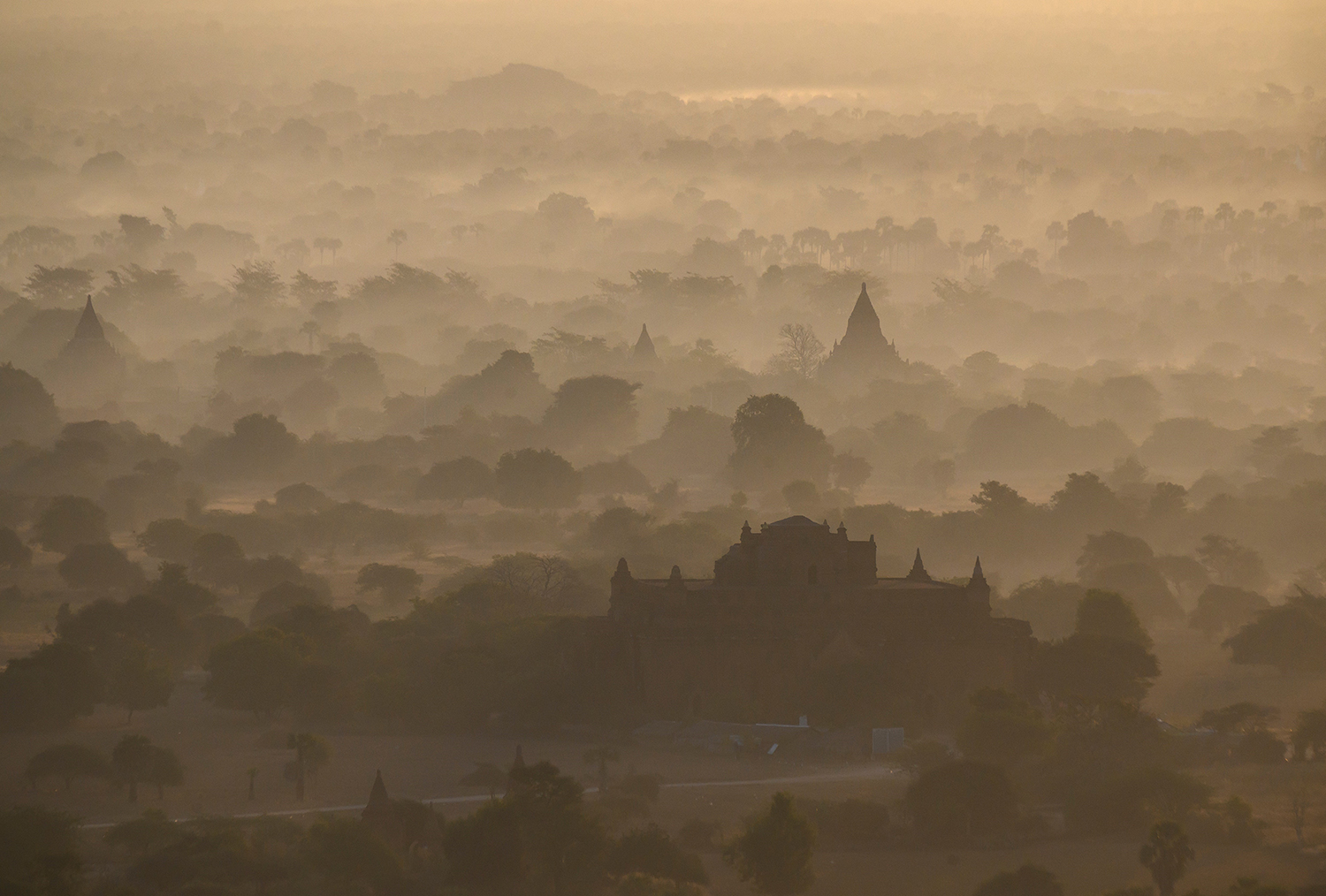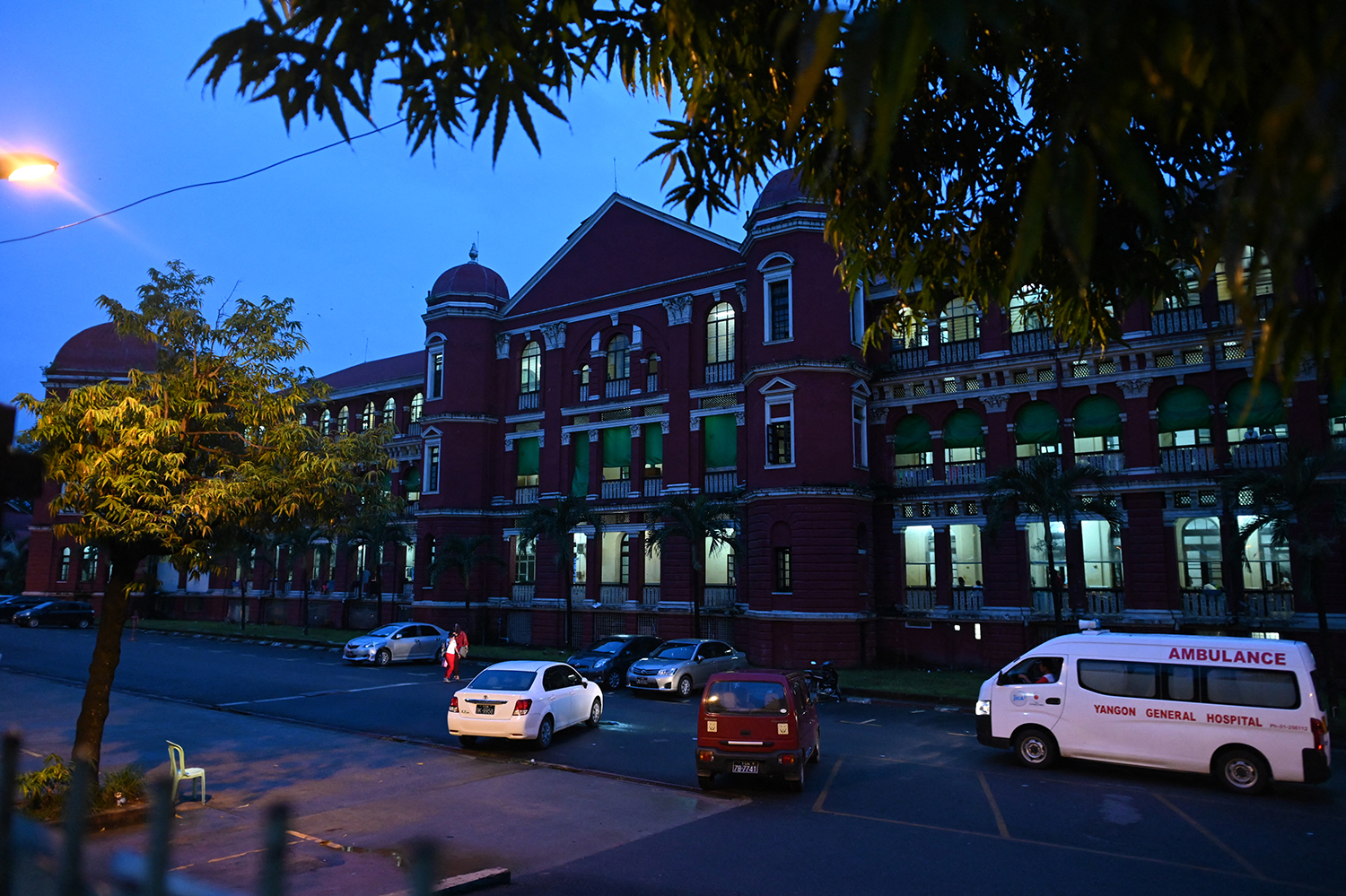By CLARE HAMMOND and WIN ZAR NI AUNG | FRONTIER
YANGON — Anti-Corruption Commission chair U Aung Kyi spoke to Frontier about President U Win Myint’s support for an ambitious anti-corruption drive that aims to end bribery and enforce transparent government spending.
Q: When U Win Myint became president he met almost immediately with the Anti-Corruption Commission. What was his message?
A: Our commission was summoned to meet with the president and he gave us guidance. We are happy about it and we are proud of it. The key message was to reveal his strong will to support the anti-corruption campaign. He wanted to know what challenges we are facing in doing our duty and how he can offer assistance. He promised to do what he possibly can to make our work effective.
Q: Was anything significant decided at the meeting?
A: The main thing is the president’s clear and decisive support of the anti-corruption mission, which is a great help to our endeavour. We submitted some of our future plans and he supports their execution. The existing Anti-Corruption Law is hindering our efforts and makes implementation difficult. The president knew about the fourth amendment to the law [which may empower the commission to launch investigations without a formal complaint] when he was Pyithu Hluttaw speaker and he agrees to it. This is very helpful in our preparations for an anti-corruption campaign.
Q: Legally, the commission answers to the President. Does he have the power to intervene in your work?
A: By law, if the president and the two Hluttaw speakers assign us to do something, we must do it. Also, according to Article 16(e), having completed an investigation, we must report to the president and the two parliamentary speakers. Aside from this, there is no interference in our mechanisms for scrutinising complaints or in our investigations and decision making.
Q: Did the president escalate the cases against former Minister for Planning and Finance U Kyaw Win, or were you planning to investigate these anyway?
Support more independent journalism like this. Sign up to be a Frontier member.
A: The complaint letter came from the president. It was only a letter and there was no direction in it. It simply advised us to proceed as necessary. Our committee that scrutinises complaints decided that an investigation should be carried out. When it was complete, the commission met and we decided the complaints in the letter did not fall within the Anti-Corruption Law.
Our commission has three kinds of authority. If we find a complaint is false we can dismiss it. If the case cannot be handled under the Anti-Corruption Law, we can refer it to another department. If there is strong evidence for the case, we can prosecute the accused in court, and we will make an announcement. In the case of U Kyaw Win, under article 28(a)(1) it was decided that there was no firm supporting evidence, so our job here is done.
Q: Could you tell us more about the investigation?
A: The complaint contained eight points. The first three were social matters and therefore were not our concern. Two points were important, but they began before [Kyaw Win] was appointed minister and we decided he was not responsible. The other three were found to be false. One, for example, was that his children own many luxury cars. We went with responsible elders in the quarter to check, but we found the cars were ordinary.
Q: Was it an accident that the case became public before the investigation was over?
A: It was not an accident. It was intentional and I am so sorry about it. We have to keep our investigations secret, because it is very easy to write a complaint letter. The accused is then looked upon as corrupt and a criminal, which is very undesirable. If we find a complaint is untrue, we do not reveal it to anyone, or risk harming the dignity of the falsely accused.
In the case of U Kyaw Win, we questioned his children about their cars and our men took photographs at his house. It was then reported, incorrectly, that the Bureau of Special Investigation had raided the house of a Union minister. So we had to tell the public our commission had checked the house and that we had nothing to say on the matter. If the news had not leaked, we would have not revealed this to anyone.
I am so sorry about it. We have conducted many investigations and have been very careful to keep them secret. I promise to keep complaints confidential in future.
Q: The minister had to resign, even though he was not found guilty. How can you prevent this from happening in future?
A: Under article 28(a)(1) our commission must dismiss a complaint if there is no firm supporting evidence. We do not say whether the accused is guilty or not. We cannot say this for sure and it is not our responsibility. To ensure something like this does not happen in future, a complaint should be definite and firm. If the evidence presented is strong, there is no reason not to take action against the accused. The person who makes the complaint should have been directly involved, or an eye witness. If they can prove a bribe has been given or received, the accused will surely be prosecuted.
Q: What are the most important changes to the Anti-Corruption Law now being discussed in parliament?
A: There are a variety of interpretations of corruption written into the law, the most important of which is bribery, which includes money, houses, apartments and cars, among other gifts. Offering services and sponsoring ceremonies are also forms of bribery, but not many people realise this. We have told the public sector and businesspeople that they should be careful about this kind of bribe. Now, the interpretation of corruption described in the Anti-Corruption Law must be changed. Both Hluttaws have agreed to this and we will announce it once it is approved by the president.
Q: How do you expect legal amendments will affect the mandate of the commission?
A: We are preparing to systematically tackle corruption. If we take action against small cases, here and there, it will not be effective. If we focus only on response measures, it will be endless. There are also many ways to prevent corruption before it happens. We have to prevent the loss of morals with rules and regulations. Officials must be responsible and accountable for their departments. Public finances must be transparent and the budget must be spent transparently. Our plans are as ambitious as this.
Meanwhile, we will decisively take action against corruption. It will not die out overnight. Chinese President Xi Jinping announced a campaign against corruption in 2012, at the 18th Communist Party Congress, but it was seen as effective only three years later in 2015, when senior officials were disciplined. We have only been tackling corruption for six months. I would like you to wait and see what we can achieve within a year.
Q: Does the commission have the authority to tackle corruption in the military?
A: Under Section 291 of the constitution, defence services personnel are recognised as civil services personnel. But because the nature of their work is of special significance, they are governed by military laws. This is also true in cases of corruption. But if our civilian side can tackle corruption effectively, I think the Tatmadaw will follow our example.
The Tatmadaw has many laws of its own to relating to corruption, which are stricter and harsher than ours. It has a faster investigation system and a faster legal system. Just as we are tackling corruption, I believe it will do the same.







